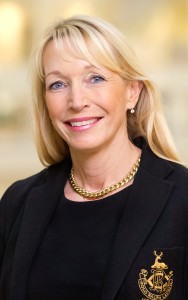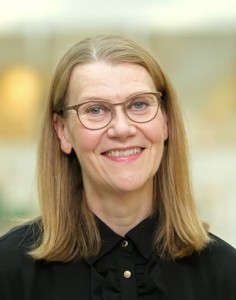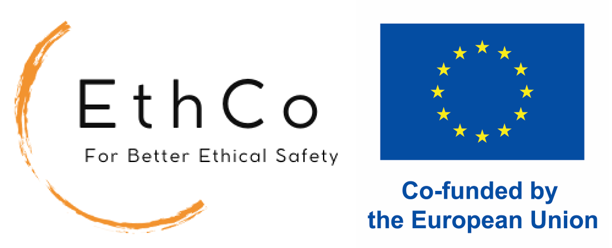
Karolinska University Hospital
The Karolinska University hospital has approximately 4000 employes from diverse professions in the healthcare section.
The childrens PMI has about 400 employees and the infection ward has about 150 employes. All from diverse professions, physicians from diverse fields, occupational therapists, nutritionists, specialist nurses, registered nurses, nurses helpers and so on.
The Karolinska University hospital is ranked as the 8th hospital in the world. There is education in all health care profession at all levels in close corporation with the Karolinska institute. Yearly there is a large number of students engaged in clinical rotation and a large number of co-workers engaged in theoretical education and clinical education.
Karolinska Team
The Karolinska University Hospital (KUH) is providing highly specialized medical care according to evidence-based medicine. The foundation for the mission is based on three corner stones: 1. Provision of health care, 2. Education, and 3. Research. All three of these corner stones are very relevant for the implementation of the EthCo project. Especially KUH’s experience from real healthcare scenarios in work life is essential for the project.
The key persons in this project are engaged in theoretical as well as clinical learning, meeting students from diverse profession. The key persons are all senior researchers holds a PhD and are skilled in medical education as well as in nursing care. They all have extensive experience of working with educational and research processes and implementation of results from such collaboration projects. The organisations that will be a part of this project contains of a wide range of persons in different ages needing specialist care in intensive care, anaesthesia care or infectious care. There is subsequently a wide range of ethical challenges present in this clinical context that will contribute to the success of the EthCo project.
There are a number of complex problems within the health care system that needs to be resolved. For instance, the combination of the development of medical specialisation with the creation of linear organisations has lead to patients finding it difficult to navigate within the health care system, which in turn makes it more difficult to ensure the right competence at the right time – including ethical competence. Step by step we are heading towards the goal we aim to achieve: To treat each patient, including his or her experience and specific situation, as an equal part during the care.
Karolinska University Hospital team members

Gunilla Björling (RN, PhD, Professor in Nursing Science) is an experienced researcher and professor in nursing science at Kilimanjaro Christian Medical University College, in Tanzania and deputy Professor in Care Sciences, digitalization and Informatics at Jönköping University with a demonstrated history of working in collaborated research project. Her area of expertise is in nursing sciences, medical technical products, and patient safety with focus on material wear correlated to clinical complications and patient experiences. She is the project leader of on-going studies on cancer, quality of life and patient safety. She has also been involved in an EU-central Baltic project concerning Ethics in Health Care, as well as the project leader for different collaborative educational and research projects in Tanzania funded by i.e., Erasmus+. https://youtu.be/DEi0tp3PaoE

Janet Mattsson (RN, MME, Ph.D, Professor of Critical Care) is a critical care nurse and researcher within the field of high technological nursing care and medical education. Her interest lies within how technological development affects learning, health, ethics and participation. She is interested in interactive processes that take place in a high-tech environment for a longer or shorter time and what this means for nursing development. She has several research collaborations and is the Nursing president elect of ESPNIC: ESPNIC – European Society of Paediatric and Neonatal Intensive Care

Katri Manninen (RN, MSc, PhD) is nurse, educator and researcher within the fields of infectious diseases and medical education. She works as a university nurse at the department of infectious diseases doing both clinical work and working with educational issues and nursing development. Katri’s passion is learning in clinical practice from the perspectives of students, supervisors and patients. She is member of a team that has established a Clinical Education Ward at the Department of Infectious Diseases and currently a pedagogical leader for the ward. Katri has also established and been program director for a specialist nursing program in infectious diseases at Swedish Red Cross University.
Katri supervises students in clinical practice, gives lectures on infectious diseases and nursing and on learning in clinical context. She is a pedagogical advisor in several national and international educational projects. Katri’s research experience is in clinical education and learning in clinical practice. She has explored how experience of authenticity can affect student learning, supervisors´ pedagogical role and patient involvement in a clinical context with explicit pedagogical framework.
Katri conducts research on learning clinical reasoning, building trust in clinical education, learning ethics in clinical practice and peer-learning in clinical practice. She is a member of several research networks and supervisor for doctoral students. She has gained experience of international collaboration in the SimE project (Simulation Pedagogy in Learning Ethics in Practice in Health Care: https://simethics.eu )
